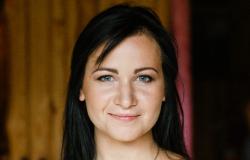155 cases of whooping cough have already been registered in Latvia this year, which is seven times more than in three months of last year and more than in the whole year as a whole. The situation in Latvia causes concern, but cases of illness are tracked, the situation in Latvia is assessed by epidemiologists of the Center for Disease Prevention and Control. Specialists recommend following the vaccinations scheduled in the children’s vaccination calendar and urge you not to be late with regular vaccinations, especially for babies, as this is vitally important.
Serious trouble in Europe
One of the European countries where there is a particular concern about the spread of whooping cough is the Czech Republic, where the number of cases and deaths has increased rapidly. Whooping cough is a highly contagious, acute respiratory infection caused by a rod-shaped bacterium. The disease is characterized by a severe, paroxysmal cough that can last for two months or even more. Before the introduction of vaccination in 1958, whooping cough was a very widespread disease, which mainly affected children under five years of age, mostly under the age of one year.
In the Czech Republic, such an increase in the incidence of whooping cough has not been observed since the distant 1959. Several thousand cases of illness have been registered in the Czech Republic, most of which are teenagers. Similar to Latvia, vaccination against whooping cough is mandatory there, however, since revaccination is required, parents vaccinate babies, but older children – not.
In general, in Europe, according to data from the European Center for Disease Prevention and Control, in recent months several member states and neighboring countries have reported an increase in the number of pertussis cases compared to the pre-pandemic period. The age groups most affected are children and younger teenagers. In addition, infants and young children who are too young to receive the required vaccination course are also affected, and deaths have also been reported. “Whooping cough is a bacterial infectious disease that is endemic throughout the world. Even if a relatively high vaccination coverage has been achieved, increases in morbidity are recorded, usually every three to five years, because the number of susceptible persons accumulates,” Ilze Údre, a specialist at the Center for Disease Prevention and Control, told “Neatkarīgai”.
The disease became active after covid
Why is whooping cough now spreading again? Epidemiologists estimate that the current increase in morbidity is most likely related to less circulation of the disease agent (bacterium) due to the restrictive measures during the Covid-19 pandemic, as well as – the second explanation – insufficient vaccination coverage in certain groups, that is, people do not vaccinate or children do not vaccinate.
“Babies have the highest risk of severe illness and death when infected with whooping cough, and in European countries almost all deaths have been observed in babies younger than three months, and the risk of infection of babies also increases during the increase in morbidity,” says I. Údre.
Also in Latvia, the increase is severalfold
Latvian epidemiological surveillance data show that 155 cases of pertussis were registered this year from January to March, which is seven times more than in the same period in 2023 (in January-March 2023, 21 cases of pertussis were registered) and also – they are 40 percent more than in the whole of 2023 (a total of 111 pertussis cases were registered in 2023).
The highest incidence of whooping cough in Latvia in the last fifty years was recorded in 2019, when 720 cases of whooping cough were recorded (37.5 cases per 100,000 inhabitants), even now, starting from 2021, there is a tendency for the incidence to rise. A pronounced increase in the number of pertussis began in December 2023, when the number of registered patients exceeded the number of patients in December 2022 by 4.3 times.
Before vaccination against whooping cough started, thousands of people fell ill in Latvia, for example, in 1957, 5,000 cases of the disease were registered there.
The situation in Latvia causes concern, but the cases of illness are counted and analyzed, the Disease Prevention and Control Center explains to the “Independent”. Epidemiologists urge you not to delay vaccinations, especially for babies, because it is vitally important. Until the vaccination is done, it is not recommended to visit public places where the risks are increased. “We invite pregnant women to also take care of the protection of babies by getting vaccinated against whooping cough themselves, which is paid for from the state budget,” explains I. Údre.
Vaccination: a third of children have not been revaccinated
The primary purpose of pertussis vaccination is to protect infants from severe illness and death. Therefore, the main measure is timely receipt of the first dose of pertussis-containing vaccine for infants, as well as vaccination of pregnant women, which gives a significant protective effect to infants. What is the vaccination coverage?
Vaccination data show that at the age of 12 months, 94.7 percent of children of the relevant age (2022 data) received the pertussis vaccine, but at the age of two – only 91 percent. In addition, the proportion of vaccinated children decreases every year, as in 2013 99 percent of children of this age were vaccinated. At the age of seven, 89 percent of children are revaccinated, but at the age of 14 – only 71 percent.
DATA
Morbidity of whooping cough in Latvia
| 2019 | 720 |
| 2020 | 342 |
| 2021 | 9 |
| 2022 | 46 |
| 2023 | 111 |
Morbidity with whooping cough in Latvia before the start of vaccination
| 1957 | 4820 |
| 1956 | 4300 |
| 1955 | 7696 |
| 1954 | 7145 |
| 1953 | 3406 |
Source: Center for Disease Prevention and Control
Be the first to find out what interesting has happened in Latvia and the world by joining us on the Telegram or Whatsapp channel






